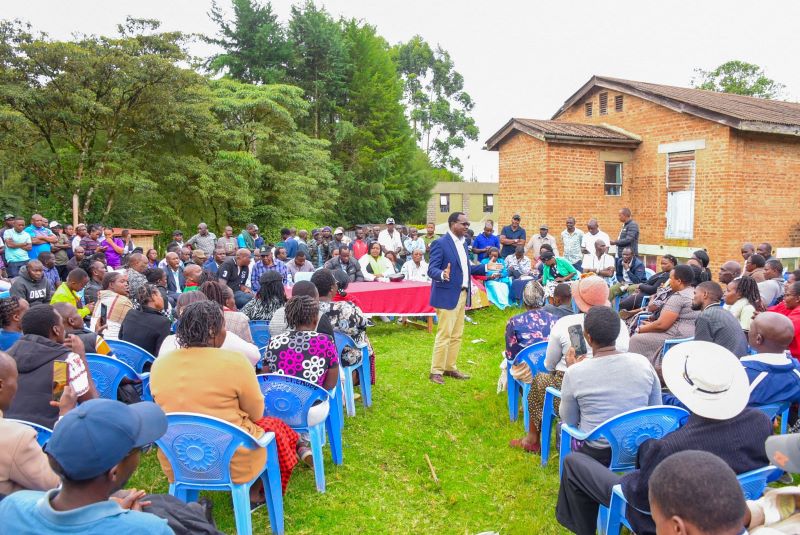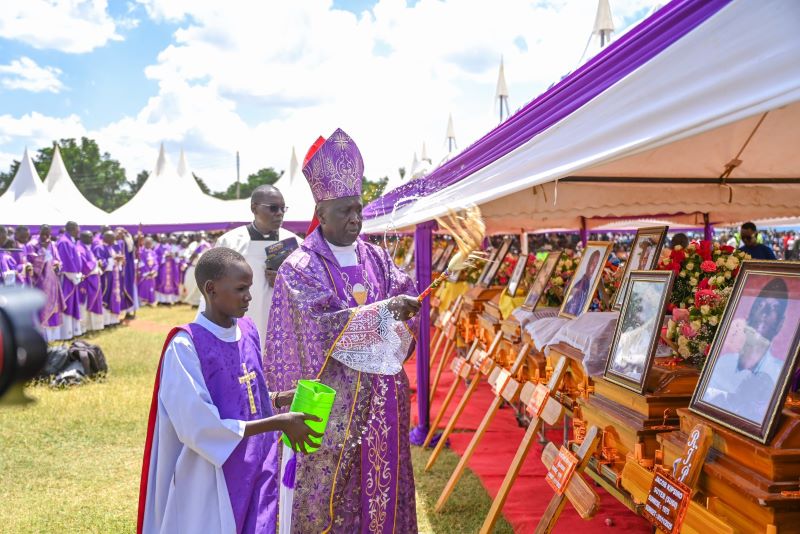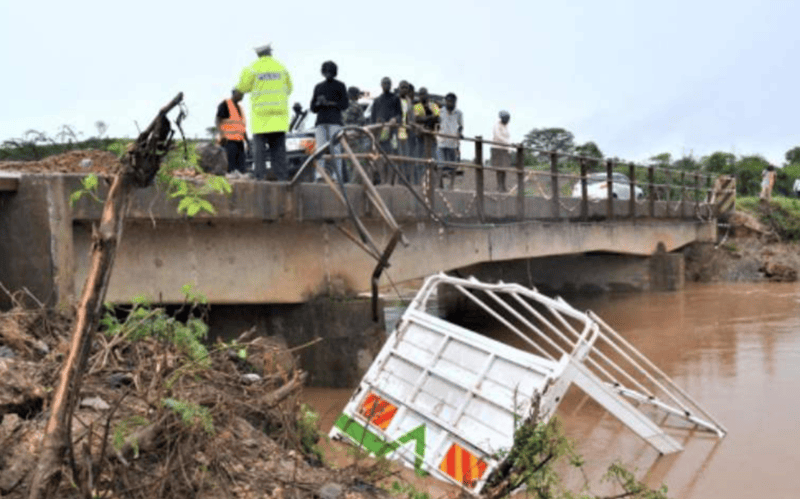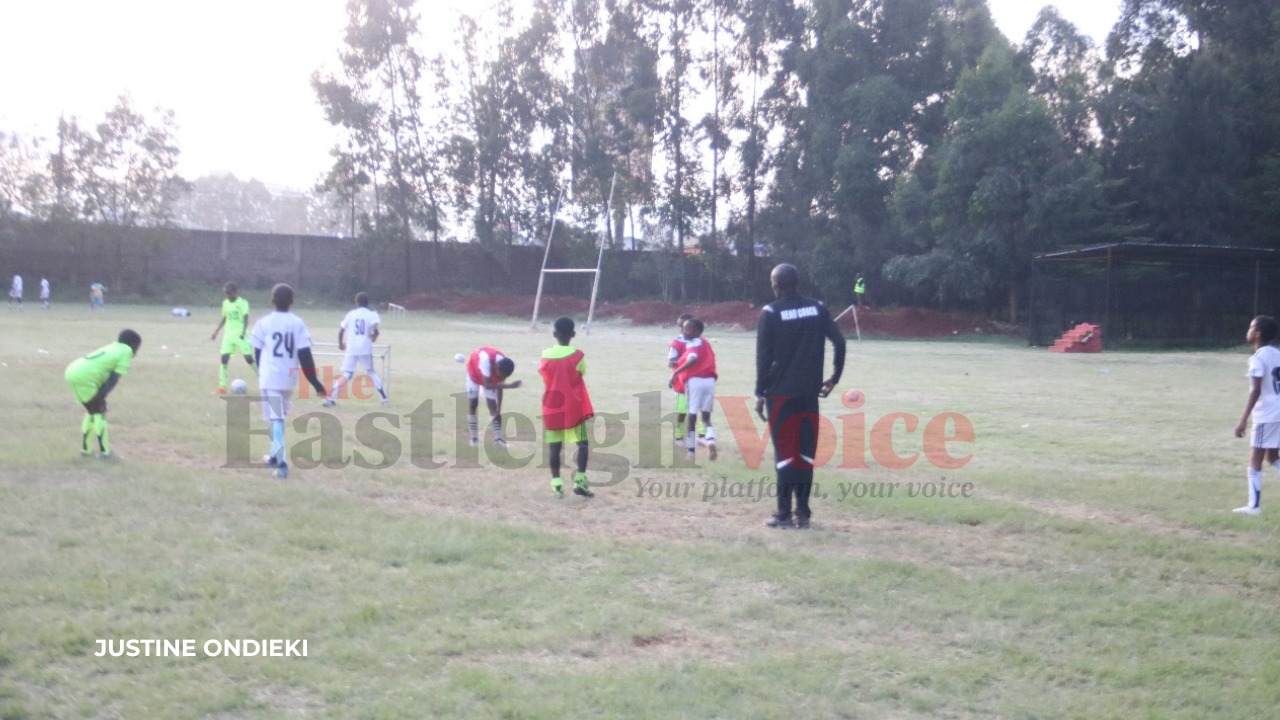The depressing experience of retrieving bodies from Kware dumpsite
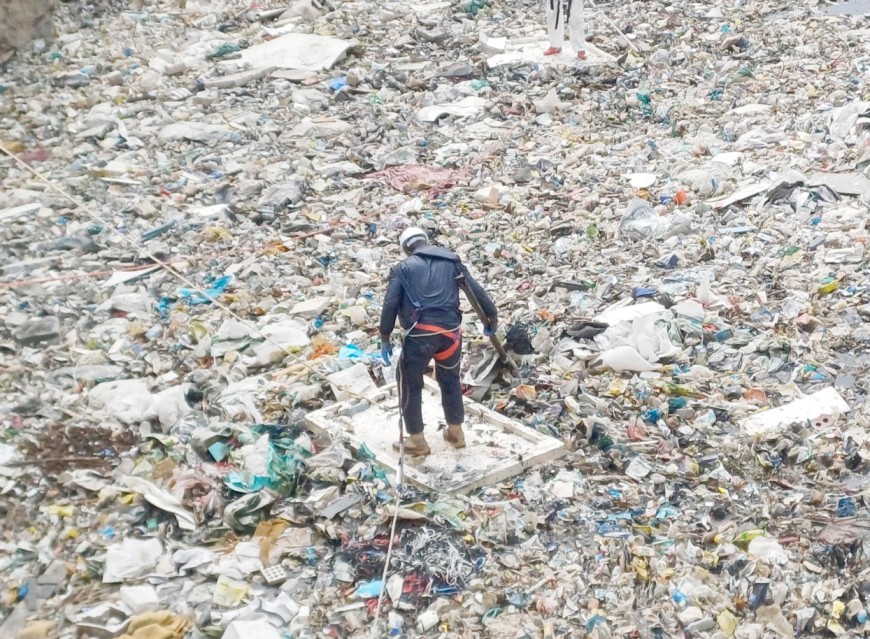
For Peter Waweru, life changed after he found himself at the centre of the unfolding shocking news of murders in Mukuru Kwa Njenga.
5Until the shocking discovery of dismembered bodies in sacks at the waterlogged Kware dumpsite, life had been relatively normal for many residents of Mukuru Kwa Njenga, a slum in the Mukuru settlement, which is located about seven kilometres south of the Nairobi CBD.
The slum in Embakasi South Constituency comprises about 30 villages, one of them being Mukuru Kwa Njenga.
More To Read
- Human Rights Watch demands release of report on probe of Kware murders
- Activists call for accountability, re-arrest of escaped Kware murders suspect
- No bodies recovered as Kware retrieval exercise resumes after two-week break
- Tears, calls for justice dominate JKUAT student Denzel Omondi's burial
- Two more suspects detained for 28 days over Kware murders
- Suspect in Kware killings detained for 30 days after claiming he was forced to confess to murders
For Peter Waweru, life changed after he found himself at the centre of the shocking news of murders in Mukuru Kwa Njenga.
Having learnt to swim as a young boy in the River Yala, which flows from the Nandi Escarpment in the Rift Valley to Lake Victoria, his skills came in handy as locals joined hands to retrieve the bodies discovered at the Kware dumpsite.
Waweru relocated to Mukuru from the Rift Valley after completing high school, hoping to earn a living in the city.
This is how he found himself living near the dumpsite that shot to the national limelight after bodies were first discovered at the Kware dumpsite on July 12, 2024.
The dumpsite was initially a quarry before it accumulated rainwater and formed a water body covered with garbage.
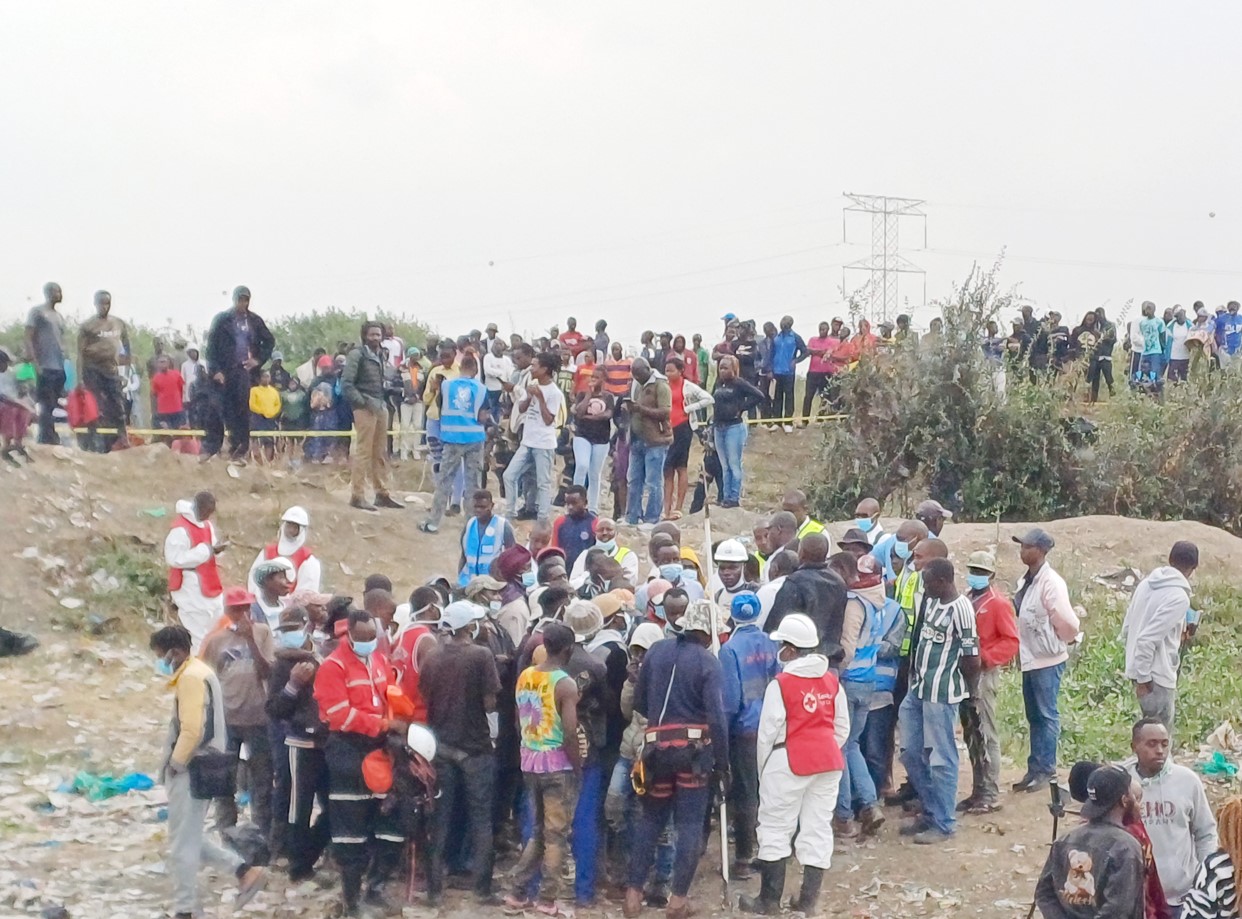 Homicide detectives brief volunteers involved in the search and retrieval of bodies. in July 2024. (Photo: Mary Wambui, EV)
Homicide detectives brief volunteers involved in the search and retrieval of bodies. in July 2024. (Photo: Mary Wambui, EV)Homicide detectives briefing volunteers involved in the search and retrieval of bodies. in July 2024. (Photo: Mary Wambui, EV)
Lorries dump waste into the seemingly bottomless pit that, for years, has not only been a health hazard but also a popular suicide spot. Locals said that at one time two lorries lost their breaks and fell into the pit have never been found.
“From what we hear, stones that were used during the construction of the Thika Superhighway were mined from this spot, which some claim is a mile deep from the current water level. The depth of the water makes it scary for many and so when an incident happens, we are called to retrieve the bodies,” says Waweru.
He has helped retrieve multiple bodies from suspected suicide cases and those of the occupants of the lorries that fell into the pit.
Waweru says the past incidents did not concern him as much as the causes of the deaths were often known.
But the recent deaths have triggered questions in his mind.
How did such macabre killings occur just next to his favourite spot? How come all the bodies they retrieved were of the same gender?
On the day the first body was discovered, Waweru had gone to the nearby field to play football when a woman came by with a familiar but unusual request.
Other Topics To Read
“It was on a Friday when she came by and claimed that she had a vision that her sister’s body was lying in the dumpsite. She asked us to search for it for a fee of Sh5,000, which we agreed to,” he says.
They retrieved the first body around 5:30 pm. The young men reported the finding at the Kware police post.
“The following day, we resumed the search and discovered nine dismembered bodies—four the next day and six in the days that followed. The woman later identified her sister’s body at the City Mortuary,” he said.
What began as a simple job morphed into a full-blown investigation involving homicide detectives, triggering anxiety in the community.
There were also concerns from the public about the health and safety risks associated with the retrieval of bodies. Authorities did not respond to calls to provide proper diving gear.
The discovery of the bodies triggered nationwide shock, with many linking them to the killings of anti-government protesters, as this happened at the height of Gen Z demonstrations.
However, a post-mortem on the initial body parts quelled the doubts when they revealed no evidence of shooting, according to Chief Government Pathologist Johansen Oduor.
A few days later, the DCI paraded items said to have been recovered from the house where the chief suspect, 33-year-old Collins Jumaisi Khalusha, lived.
Describing the suspect as a psychopathic serial killer who lacks regard for human life, Amin said the man confessed to having killed 42 women between 2022 and July 11, 2024.
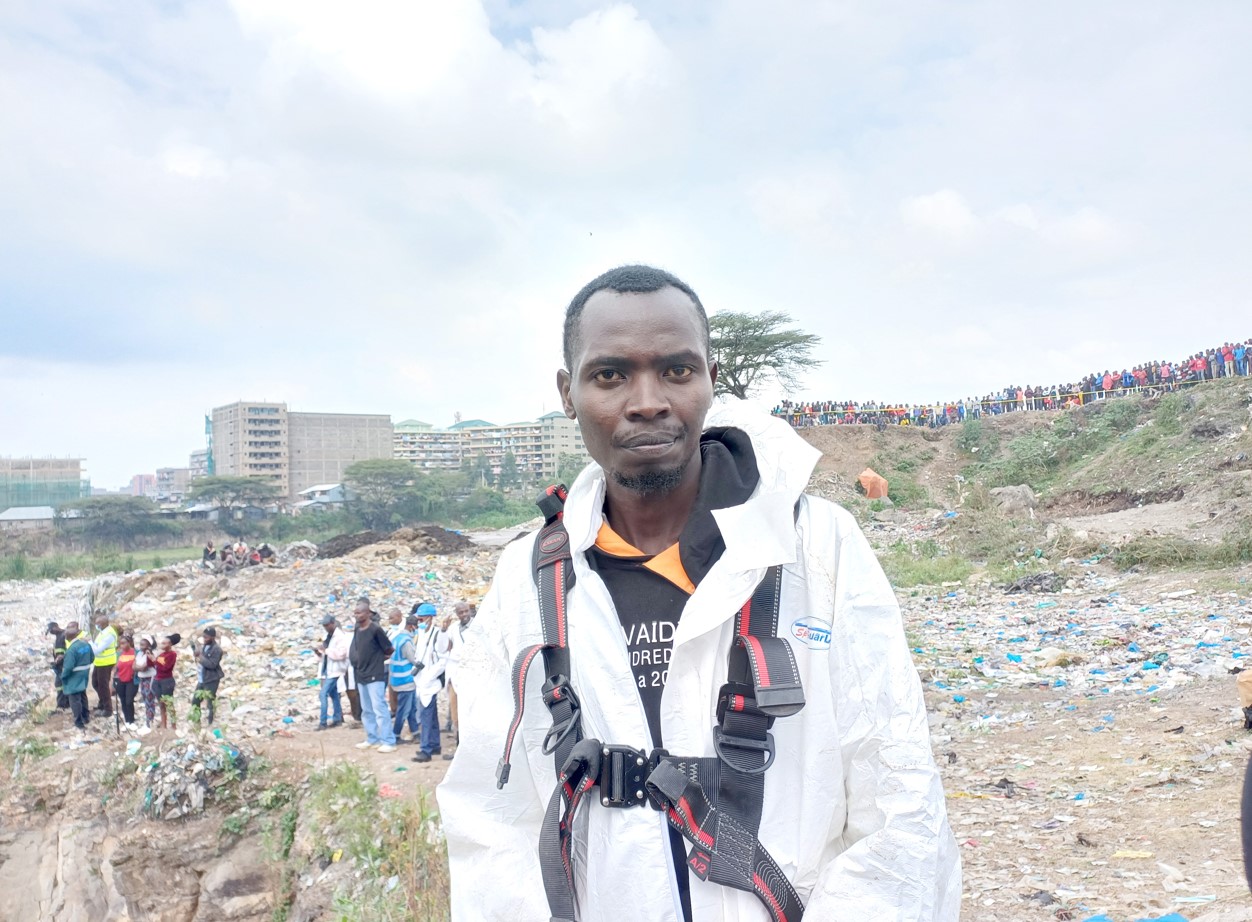 Peter Waweru. (Photo: Mary Wambui/EV)
Peter Waweru. (Photo: Mary Wambui/EV)Peter Waweru. (Photo: Mary Wambui/EV)
Some of the volunteers who retrieved the bodies said they suffered psychological effects from the experience.
Some are coping by sleeping with lights on; others said they may have increased their drug consumption from one roll of weed to several, and others just don’t want to see tied sacks.
When The Eastleigh Voice visited the site on Tuesday, some curious onlookers kept throwing glances at our team.
“There’s a general feeling of anxiety and anticipation for what will happen next. People want this matter handled and done away with so that they can move on with their lives, the thought that there could be more bodies lying there is disturbing,” a resident said.
Local churches have been urging congregants to be watchful and keep checking on each other.
The end of the search this week puts an end to the traumatic phase of the discovery of bodies but opens a new chapter on the prosecution of suspects after the ongoing investigations that locals hope will be conclusive.
Waweru and other volunteers have been promised counselling sessions, but he says what he mostly needs is money and a regular source of income.
“If anyone wants to counsel me, can the offer please come with money? I feel honestly okay; I have seen a lot during my stay in the ghetto. I am eating just fine and living my normal life, all I seek is a better income. I would appreciate even a role as a mortician,” he said.
The downside of his volunteering is that locals have come to associate him with death.
“When they point at me and say, here comes the man that retrieves bodies, I feel bad. People have different beliefs some say you should not greet them after such an exercise, you cannot do such a task without believing in God, either that or you will have to rely on drugs to get by,” he said.
Top Stories Today


